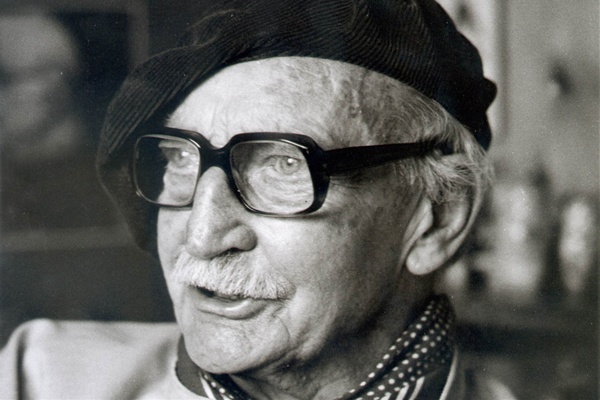In March 1974 a few hundred people gathered at Monash University in Melbourne for a weekend listening to “The Personal Philosophies of Some Eminent Australians”.
Eagerly anticipated was Alan Marshall, celebrated Australian author, humanitarian and storyteller par excellence. Mr Marshall was well-known to Australian school children as the author of “I Can Jump Puddles”, the account of his childhood encounter with and triumph over polio.

At 72 years of age, Alan was able to look back on a life filled with diverse experiences from which he had distilled an unusual wisdom. To convey this he chose not a chronological account of events, but a metaphorical story.
Thus he began: “I see life as a cavalcade, a long parade of people on horseback — the horse is the body, the rider is the mind. Everybody rides along this road.”
Alan explained that although he had a very poor horse, he was a good rider and was well-equipped for the ride by three remarks which he had heard at the beginning of the ride and which he had never forgotten. Our concern here is with the third — a statement attributed to Buddha which Alan claimed had guided him through life. He then pulled a piece of paper from his pocket and began to read:
Buddha answered:
Do not believe anything on hearsay.
Do not believe traditions because they are old and handed down through many generations.
Do not believe anything on account of rumours or because people talk much about it.
Do not believe simply because the written testimony of some ancient sage is shown thee.
Never believe anything because presumption is in its favour or because the custom of many years leads thee to regard it as true.
Do not believe anything on the mere authority of teachers or priests.
Whatever according to thine own experience, or after thorough investigation, agrees with thy reason and is conducive to thy own weal* and that of all other living beings, that accept as truth and live accordingly.
* Weal is an old word meaning “that which is best for someone or something”.
Fortunately the events of that weekend were recorded for posterity and a set of cassette tapes was released, together with a book of transcripts.
Alan’s tape was one to which I listened many times. As a young person in my early 20s, Buddha’s initial six statements about what not to believe seemed unrealistic. How could you possibly not believe so many things? And why not? Are we not conditioned from an early age to do exactly that? To take an interest in rumours. To assume the truth of traditions. To believe what is stated in revered books. Not to question the words of people in authority. To presume many things to be true simply because of habit or custom or because “everyone knows” something is true?
Yet here was Alan Marshall saying these statements had guided him through life (a fact which he repeated during the question and answer session). They were words intended to be followed and acted upon.
Buddha then goes on to clarify what one should believe.
Firstly he says believe your own personal experience.
But of course many phenomena in this world are not part of our personal experience. How are we to approach these?
In this case Buddha advises “thorough investigation” and the invocation of one’s power of reason. That which we have investigated and which “agrees” with our reason and is “conducive to thy own weal*” can be “accepted as truth”. What kind of truth? Perhaps the closest we can get to the truth on a particular subject at a particular time — a deeper insight than taking information at face value.
As a young person, I didn’t have a lot of life experience, nor was I practiced in “thorough investigation” or the use of reason and discrimination. These things develop with age and maturity.
Nowadays, more and more I find my life experience taking me back to the wisdom of the statement which Alan Marshall shared that day. I think Buddha really meant it and so did Alan. It is a statement intended to be taken seriously and applied in one’s life.
In closing, we could reflect that if Buddha were alive today, in an era where we are bombarded with information from many sources, might he have added a few extra clauses? Perhaps something along the lines of:
Do not believe what you see on television…
Do not believe what you read in the newspaper…
Do not believe what you find on the internet or social media…
Do not believe the statements of politicians and governments…
Do not believe the propaganda of corporations…
The list could go on.
And after the events of 2020, is there justification for adding even more? What would you add to the list?
Listen to part of Alan Marshall’s talk here: